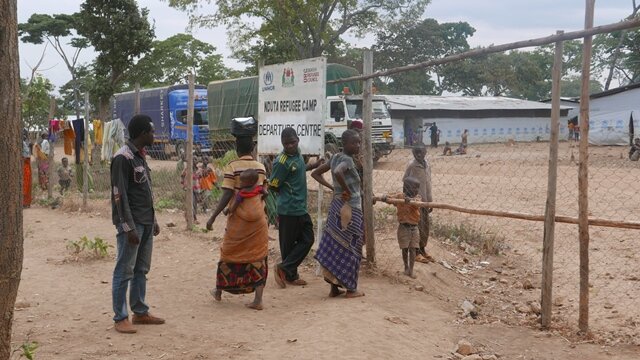Press releases
New publication \ Breaking Cycles of Displacement
On 28 and 29 November 2018, BICC hosted an international conference entitled “Breaking Cycles of Displacement” in Bonn. BICC Knowledge Note 2\2019, edited by Clara Schmitz-Pranghe and Ruth Vollmer, documents the conference’s outcomes.

The conference presented and discussed the findings of the four-year-long comparative BICC research project “Protected rather than protracted—Strengthening Refugees and Peace” This project, funded by the German Federal Ministry for Economic Cooperation and Development (BMZ), scrutinized opportunities for finding solutions to protracted displacement and investigated in how far the participation of displaced persons in peace processes influences the sustainability of their (re-)integration.
BICC Knowledge Note 2\2019 “Breaking Cycles of Displacement” documents how the conference analysed commonalities and differences of protracted displacement contexts and discussed innovative conceptualisations of protracted displacement based on the project´s research approach to understand the perspectives of those concerned. Case studies from East and West Africa, South America, the Middle East and South-East Asia were presented, covering local (re)integration of displaced persons as well as their role in peace processes, such as in Syria, Afghanistan and Colombia.
One critical outcome was that—in particular during peace negotiations—the displaced are rarely heard. Another topic of the conference were the different coping strategies of the long-term displaced. Participants discussed factors that shape prospects for social integration, the challenge of aid dependency but also translocality and its effects on living conditions and the legal status of the displaced.
BICC Knowledge Note 2\2019 “Breaking Cycles of Displacement” documents how the conference analysed commonalities and differences of protracted displacement contexts and discussed innovative conceptualisations of protracted displacement based on the project´s research approach to understand the perspectives of those concerned. Case studies from East and West Africa, South America, the Middle East and South-East Asia were presented, covering local (re)integration of displaced persons as well as their role in peace processes, such as in Syria, Afghanistan and Colombia.
One critical outcome was that—in particular during peace negotiations—the displaced are rarely heard. Another topic of the conference were the different coping strategies of the long-term displaced. Participants discussed factors that shape prospects for social integration, the challenge of aid dependency but also translocality and its effects on living conditions and the legal status of the displaced.


